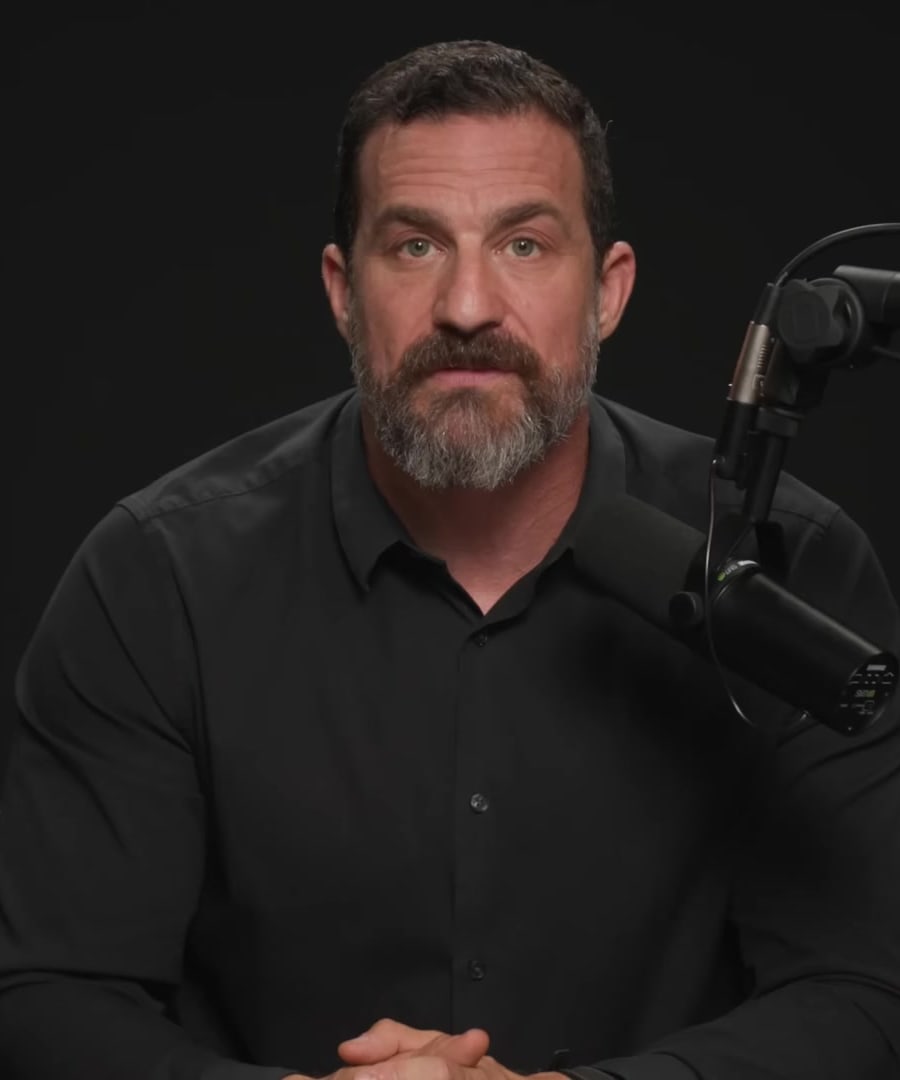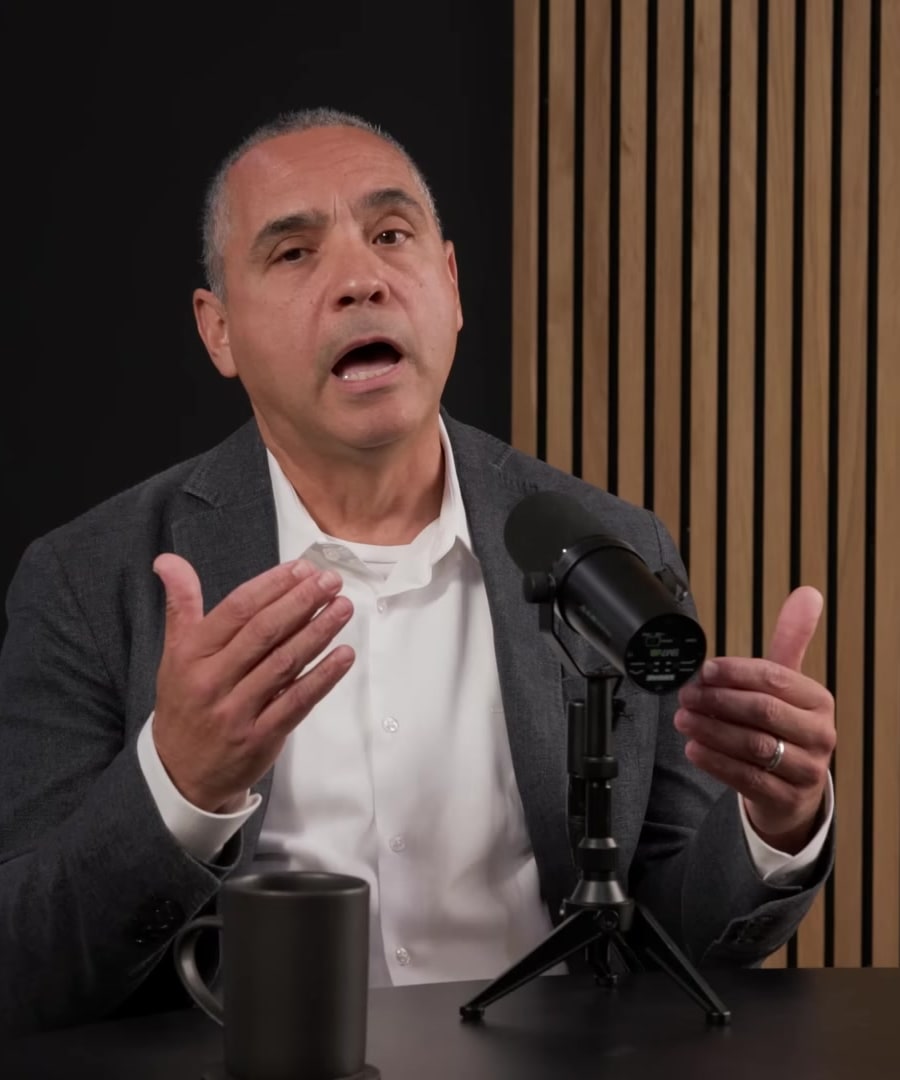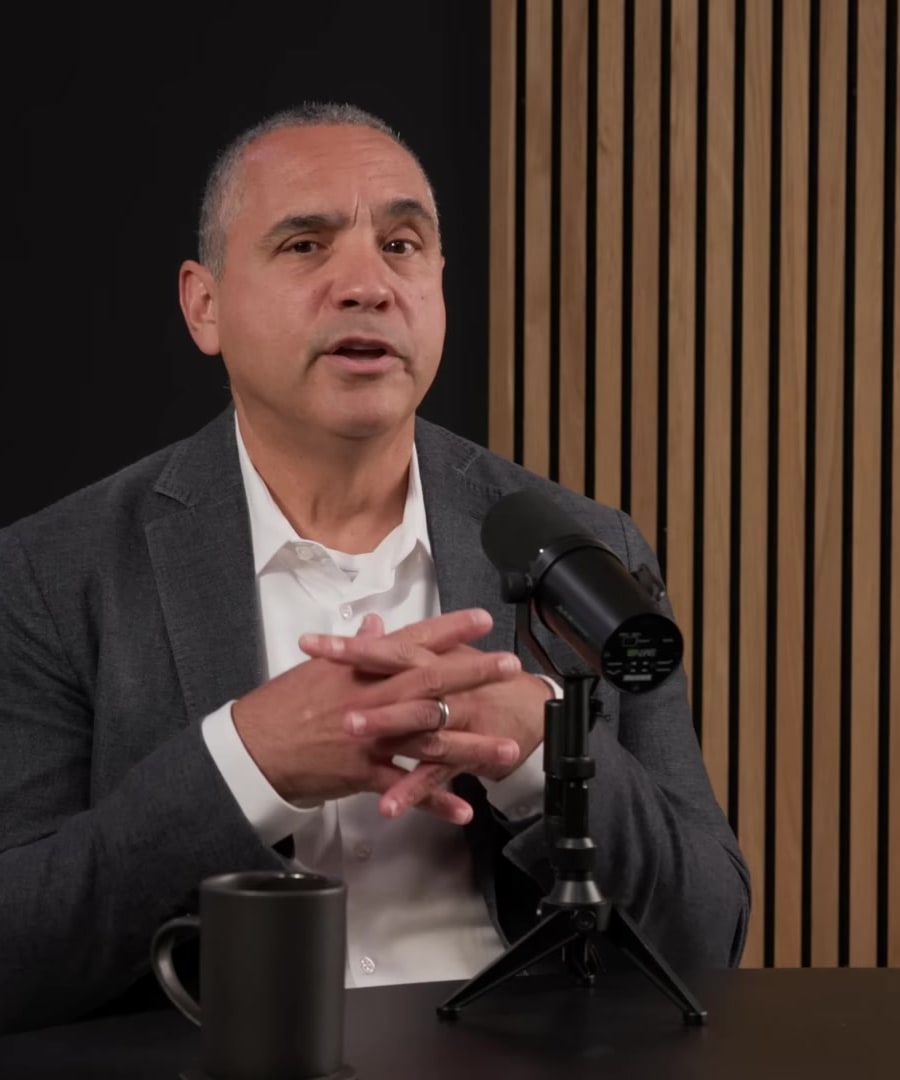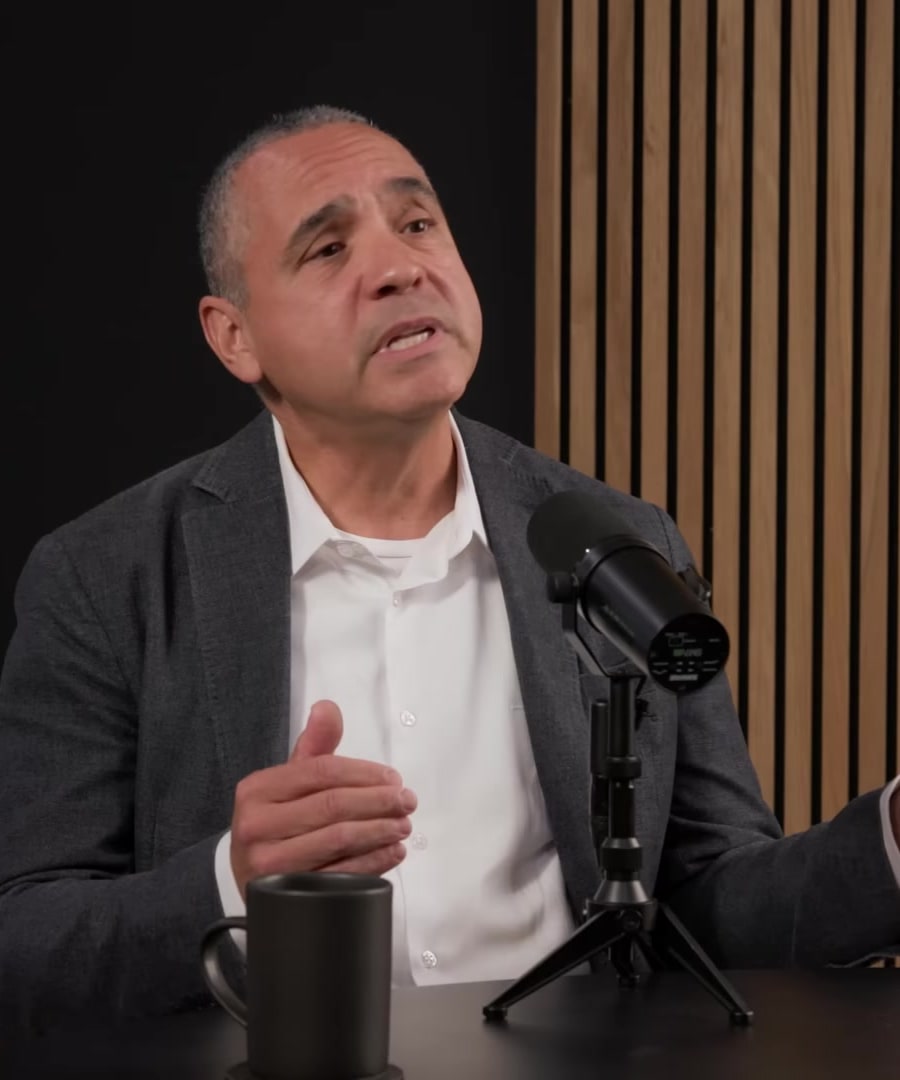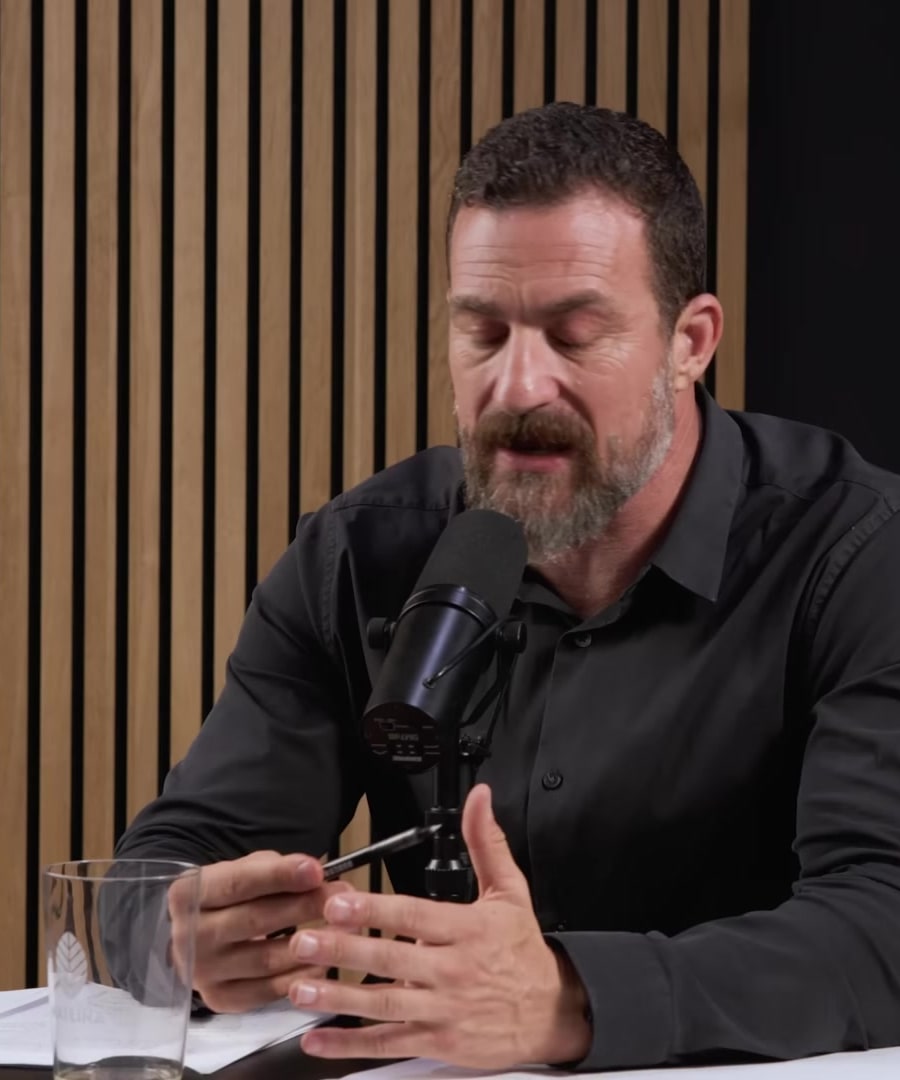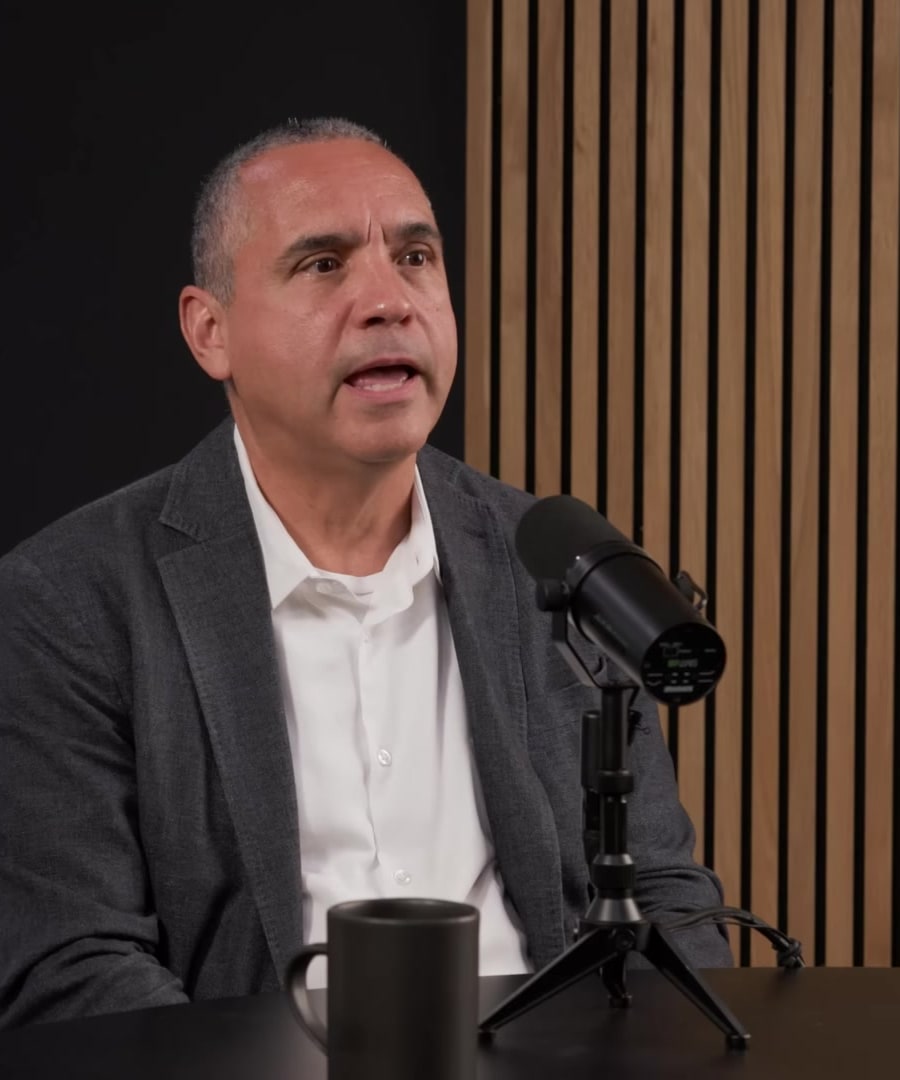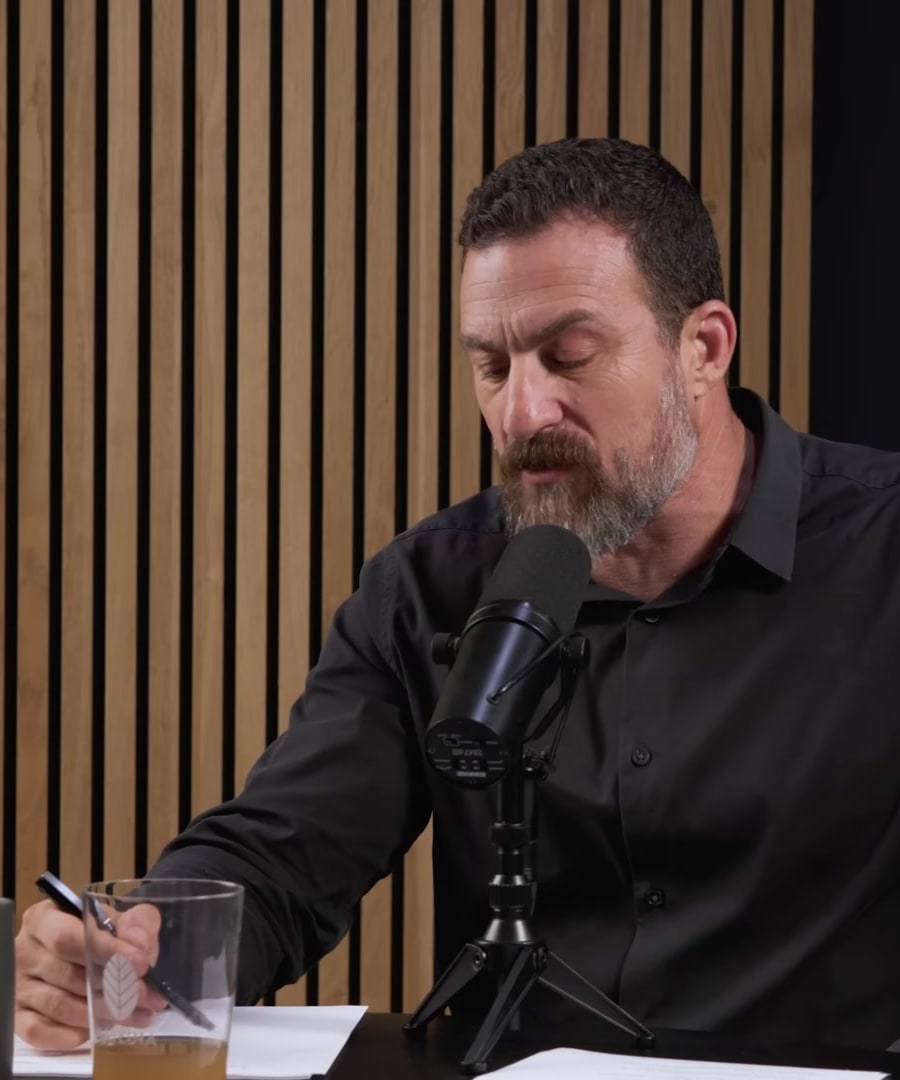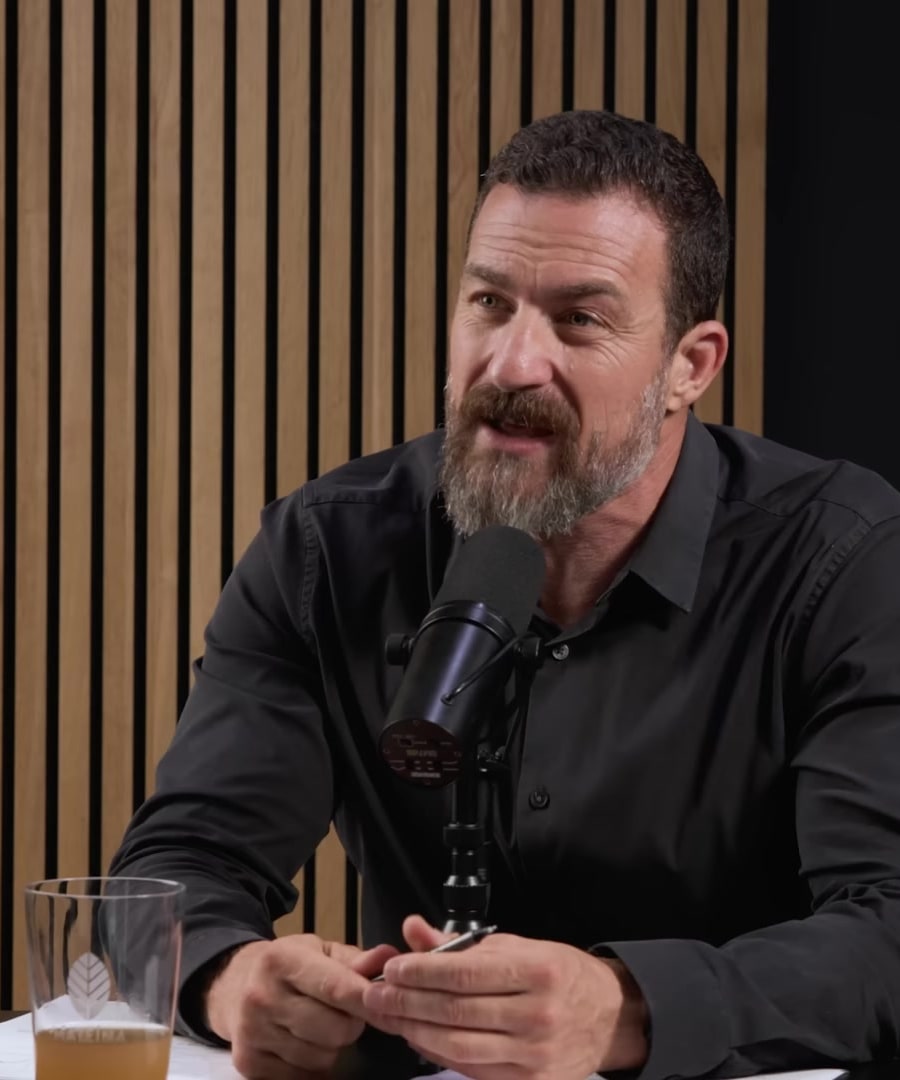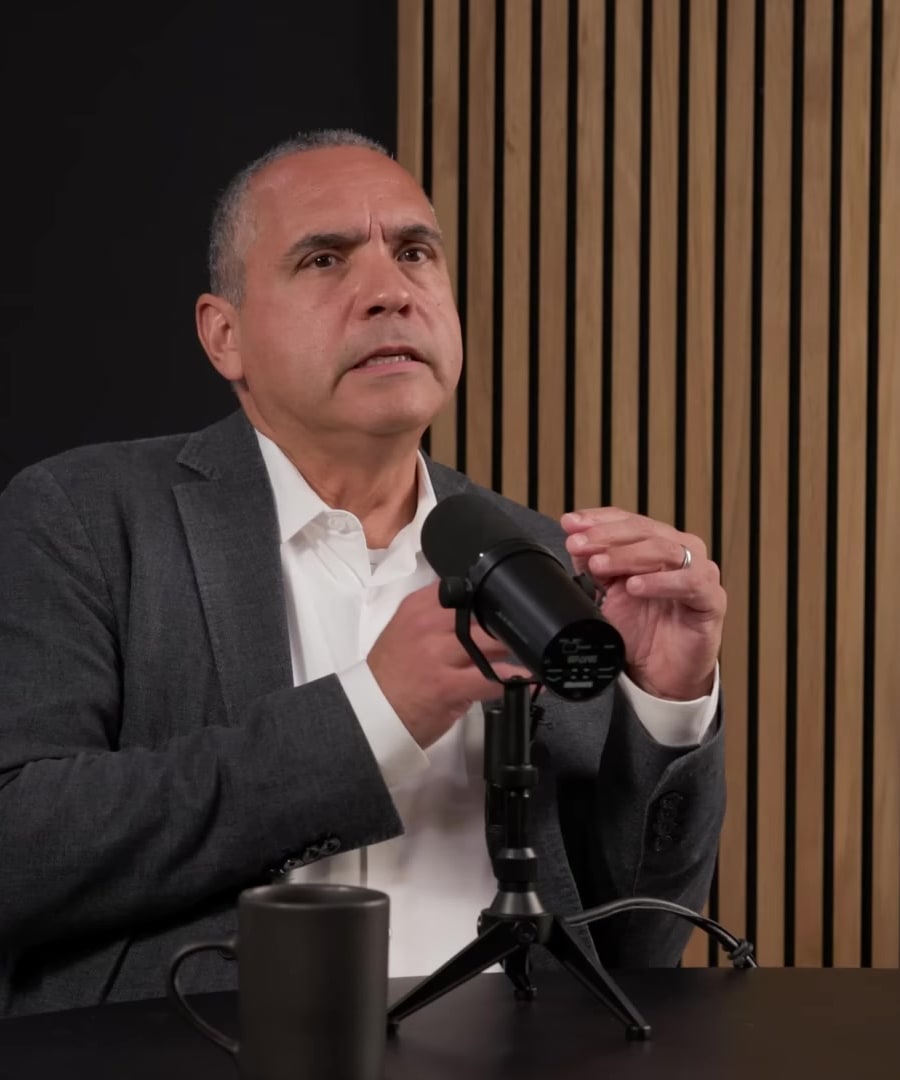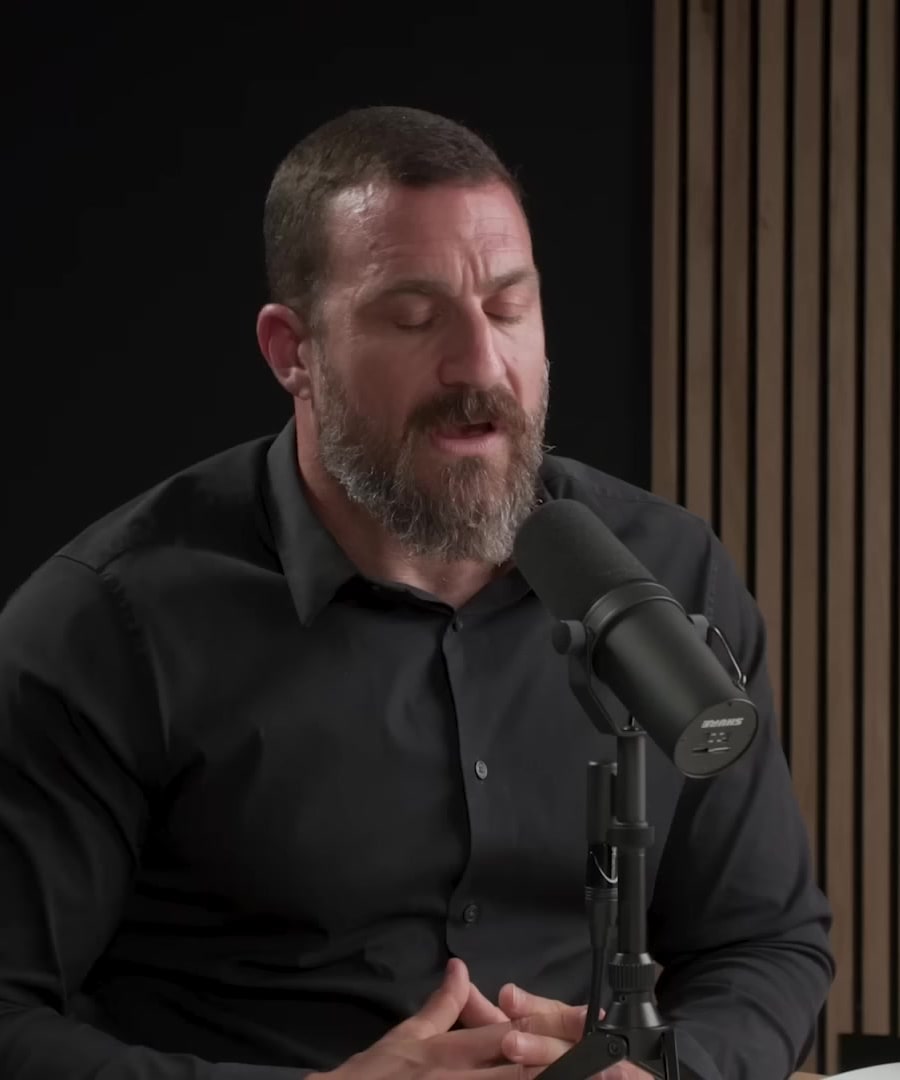Summarize episode Dr. Victor Carrión: How to Heal From Post-Traumatic Stress Disorder (PTSD)
Sources:
In the of the , and delve into the intricacies of PTSD and effective treatments.
Key Topics Covered:
-
Understanding PTSD:
-
Stress Dynamics:
- Stress operates on a spectrum from beneficial to traumatic. Managing stress is essential for health and performance, but excessive stress can lead to traumatic experiences 3.
-
Childhood Vulnerability:
- Children are particularly vulnerable to PTSD due to the neuroplasticity of their brains, which makes them highly sensitive to stressors but also capable of recovery with proper support 4.
-
Trauma Treatment Innovations:
- Emphasizes the need for accessible mental health resources. Tools like Q Center therapy, self-directed hypnosis, and mindfulness practices are discussed as effective interventions 5.
-
Listening and Healing:
- The importance of listening to those affected by PTSD, particularly children, to create supportive environments and empower individuals in their recovery journey 6.
This episode offers comprehensive insights into the causes, effects, and innovative treatments for PTSD, stressing the importance of a supportive environment and the impact of stress on mental health.
RELATED QUESTIONS-
Summarize Dr. Victor Carrión: How to Heal From Post-Traumatic Stress Disorder (PTSD)
Sources:
In the of the , and discuss the complexities of PTSD and its treatment options. Key highlights include:
Understanding PTSD
- PTSD can impact daily functions without a formal diagnosis, manifesting as impairments in school, relationships, and overall well-being 1.
- The disorder is often due to the accumulation of stressors rather than a single traumatic event 2.
Stress Dynamics
- Stress ranges from beneficial to traumatic, with manageable levels enhancing performance up to an optimal point. Beyond this, stress can be detrimental, leading to traumatic experiences 2.
Vulnerability in Children
- Children are particularly susceptible to PTSD due to their neuroplasticity, making them highly sensitive to both negative and positive experiences 3.
- Providing supportive environments and effective interventions are crucial for fostering resilience and recovery 3.
Trauma Treatment Innovations
- Victor discusses the need for accessible mental health resources and innovative tools like Q Center therapy, mindfulness, and self-directed hypnosis 4.
- Emphasizes the importance of community and school-based support systems to help those at risk 4.
Importance of Listening
- Listening to the experiences of those affected by PTSD, especially children, is pivotal. It creates a supportive space for individuals to identify their strengths and take agency over their healing process 5.
This episode sheds light on the causes, effects, and innovative treatments for PTSD, stressing the importance of understanding, structured support, and creating supportive environments for recovery.
RELATED QUESTIONSCan you tell me more about Dr. Victor Carrión?
Sources:
is a preeminent expert in the field of child and adolescent psychiatry. He holds the position of John A. Turner, M.D. Endowed Professor of Child and Adolescent Psychiatry and serves as the Vice Chair of the Department of Psychiatry and Behavioral Sciences at Stanford University. His work is widely recognized for advancing the understanding and treatment of post-traumatic stress disorder (PTSD) across different age groups.
In his career, has been instrumental in developing effective therapeutic interventions and advocating for accessible mental health resources, particularly for vulnerable populations such as children. His research emphasizes the neuroplasticity of young brains, highlighting both their susceptibility to trauma and their capacity for recovery with proper support and interventions.
He appeared on the to discuss the nuances of PTSD and share insights into innovative treatments and support systems for those affected by the disorder.
RELATED QUESTIONSWhat are the specific things that Dr. Victor Carrión talk on memory in this podcast?
Sources:
delves deeply into the effects of cortisol on memory and brain development in children dealing with post-traumatic stress disorder (PTSD). Key points from his discussion on memory include:
-
Impact of Cortisol on Brain Structures:
- Carrión discusses how children with high cortisol levels exhibit less hippocampal volume. The hippocampus is critical for memory and emotional regulation due to its connections with the prefrontal cortex and amygdala 1.
- Higher pre-bedtime cortisol levels correlate with smaller hippocampal volume over time, highlighting the significance of cortisol in brain development and stress response 2.
-
Functional Imaging Studies:
- Functional magnetic resonance imaging (fMRI) studies reveal that children with PTSD symptoms show different brain activity compared to healthy peers. Specifically, the hippocampus and prefrontal cortex are less active during memory tasks in PTSD-affected children, indicating impaired memory processing and executive function 1.
- The prefrontal cortex's ability to regulate emotional responses is crucial but often impaired in children with PTSD, affecting their attention and problem-solving abilities in a manner similar to ADHD 2.
-
Assessing Emotional States and Memory:
- Carrión emphasizes the importance of tools like the emotional thermometer to measure stress levels accurately, which aids in better engagement and memory-related exercises. He suggests that interventions should be timed when children are less emotionally charged to be more effective 3.
These insights underline the complex interplay between stress hormones, brain development, and memory, emphasizing the need for targeted interventions for children suffering from PTSD to improve their cognitive and emotional health.
RELATED QUESTIONS-
What did they say about nostalgia?
Sources:
In a discussion with Rick Rubin, shares his thoughts on nostalgia, particularly relating to his fascination with New York in the mid-80s and 90s. Huberman expresses a deep interest in the cultural and creative migration from the East Coast to the West Coast during that era, reflecting on the significant impact it had on his life. He acknowledges the appeal of nostalgically longing for a different time, especially through influential figures and vibrant scenes from that period.
However, Rick Rubin counters by sharing his perspective that he is not attached to the past. Rubin explains that he doesn't dwell on past events or wish to relive former experiences, focusing instead entirely on the present and the future. This attitude towards nostalgia is highlighted as a personal inclination, not something Rubin consciously developed but rather a natural disposition 1.
This exchange underscores contrasting attitudes towards nostalgia: while some find allure and inspiration in reminiscing about the past, others, like Rubin, maintain a forward-looking mindset.
RELATED QUESTIONSWhat is Dr. Victor Carrión take on nostalgia?
Sources:
There is no retrieved data specifically linking Dr. Victor Carrión to discussions about nostalgia. However, his focus seems to be more on trauma, emotional wellness, and mindfulness, especially in the context of children and PTSD.
For instance, in one of the episodes, Dr. Carrión emphasizes the importance of listening to children and adults who are experiencing trauma. He highlights the need to create supportive environments where individuals feel heard and can identify their strengths and capabilities to help themselves 1.
For further insights into topics such as PTSD and mindfulness, you might find the episode useful.
RELATED QUESTIONS
